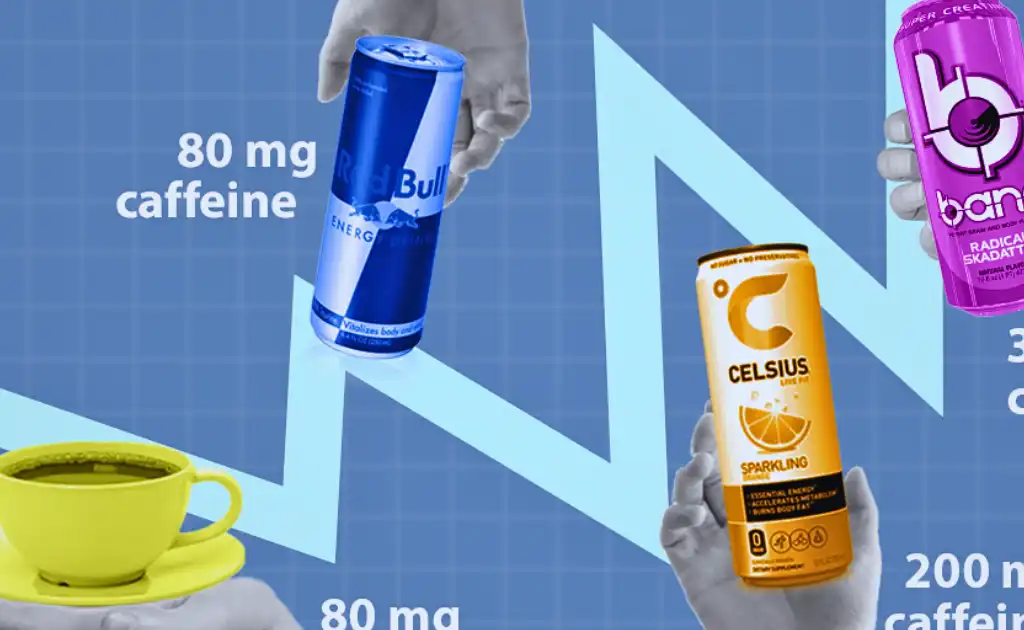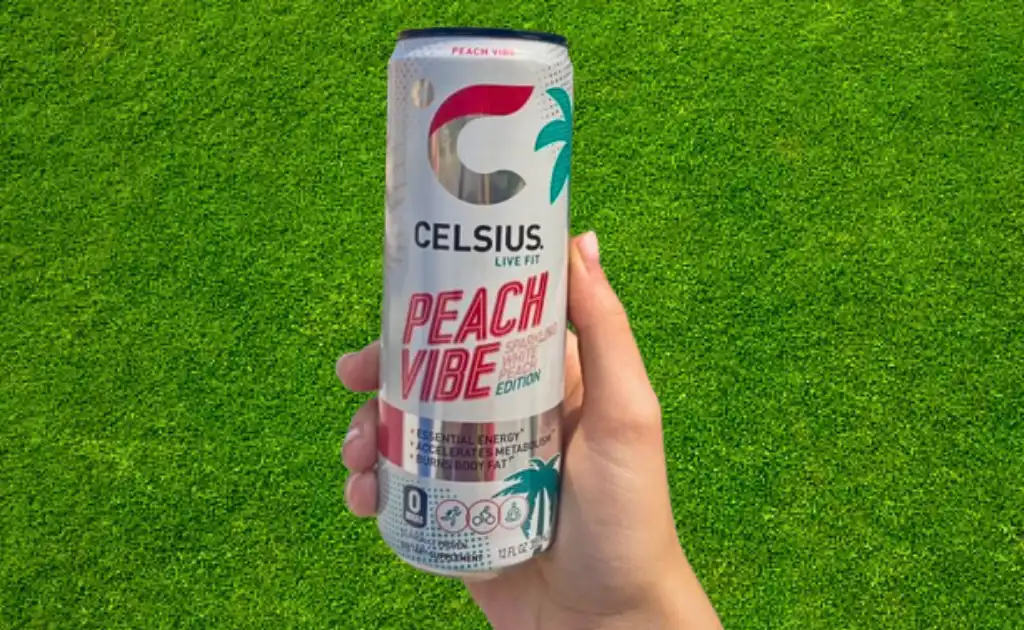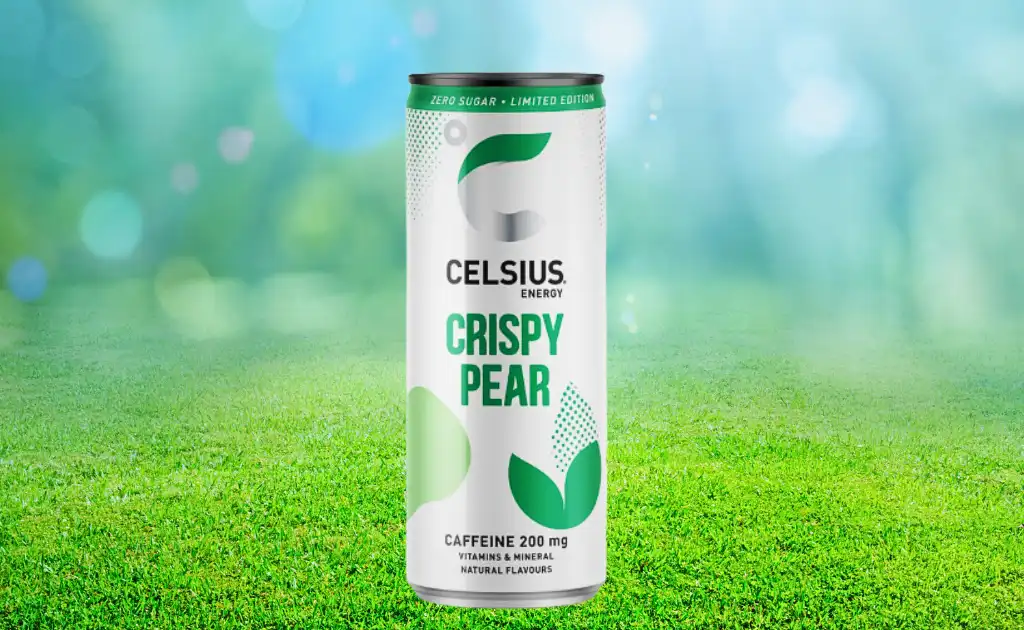Lately, I’ve been bombarded with questions about Celsius. People are curious, whether through my Instagram DMs, friends, or emails, everyone wants to know—is Celsius bad for you? Is it a healthy energy drink? As a Registered Dietitian, I am here to provide you with an expert answer. In this blog post, I’ll delve into what Celsius is and whether you should have concerns about consuming it.
What is in Celsius Energy Drink?
Celsius is a well-known energy drink that boasts a stacked ingredient list and numerous claims of positive health benefits. Let’s examine the ingredients and separate fact from fiction.
Green Tea Extract
Celsius contains green tea extract, which provides caffeine for a mood and faux-energy boost. Additionally, it contains epigallocatechin gallate (EGCG), an antioxidant that promotes daily cell health. It’s important to note that although caffeine makes us feel more awake, it does not provide true energy or calories.
Guarana Seed Extract
Guarana, derived from the Amazon rainforest, is another ingredient found in Celsius. Similar to coffee, it contains caffeine and other active compounds. However, research on Guarana extract is limited, with most studies focusing on its caffeine content. More research is needed to fully understand the safety and efficacy of the other compounds present in this plant.
Ginger Root
Ginger extract adds not just flavor but also potential anti-inflammatory properties to Celsius. Keep reading to learn more about the optimal dosage of ginger.
B-Vitamins
Celsius also contains several “B” vitamins, often grouped together as “B-complex vitamins.” These vitamins work in synergy in our body to support various functions (6).

How Much Caffeine is in Celsius Energy Drinks?
The caffeine content in Celsius Energy Drinks varies across their product lineup. The original Celsius Energy Drink contains 200 milligrams of caffeine per 8.4-ounce can, which is significantly higher than a typical cup of coffee (approximately 95 milligrams) and some other energy drinks like Red Bull (80 milligrams).
Factors to Consider
It’s important to note that a standard cup of coffee refers to an 8-ounce cup, whereas many mugs are larger in size. Additionally, ordering a grande cup of coffee from Starbucks amounts to 310 milligrams of caffeine, which is considerably higher than the commonly cited 95 milligrams.
Potential Concerns
Individuals with caffeine sensitivity should exercise caution when consuming Celsius Energy Drinks due to their higher caffeine content. Moreover, if you consume other sources of caffeine such as coffee, tea, or soda in addition to these energy drinks, excessive caffeine consumption may lead to side effects like shakiness, headaches, fast heart rate, and anxiety.
Sweeteners and Sugar Content
Celsius Energy Drinks are free from added sugar but utilize artificial sweeteners, primarily sucralose in most of their products. However, for those who prefer an alternative to sucralose, Celsius offers a line with stevia.
Is Celsius Energy Drink Good for You?
Given the range of claims surrounding Celsius Energy Drinks, it’s important to evaluate these claims based on scientific evidence.
Does Celsius Boost Your Metabolism?
Celsius may enhance your metabolism to a certain extent. According to a small study conducted in 2010, sedentary men who consumed Celsius and engaged in exercise experienced greater improvements in physical fitness compared to those who did not consume Celsius.
Understanding Metabolism
Although this finding is intriguing, it is important to note that metabolic rate is influenced by various factors, and relying solely on energy drinks is unlikely to address concerns about metabolic function. For more information on metabolism, check out my blog post here!
Enhanced Performance with Celsius?
Yes, Celsius may contribute to a slight improvement in performance, but this effect is not exclusive to Celsius. Consuming caffeine before exercise can potentially boost performance and increase pain tolerance. If you prefer, having a cup of coffee as a pre-workout alternative is a reasonable choice that may be more cost-effective and contain fewer added ingredients.
Considerations and the Bigger Picture
It is worth mentioning that all the studies referenced on the Celsius website are relatively small. While it is commendable that the company invests in research, it is crucial to remember that drinking a single beverage is just one aspect of your overall health.
Achieving weight loss and overall wellness involves an array of choices, including your dietary habits, exercise routine, stress management, and quality of sleep.
Are Celsius Drinks Harmful?
For most healthy adults (excluding children), consuming Celsius in moderation is generally considered safe. However, it is important to note that Celsius drinks contain a considerable amount of caffeine. The can itself carries a warning, stating “Do not exceed (2) servings per day. Not recommended for people who are caffeine-sensitive, children under 18, or women who are pregnant or nursing.”
If you have any underlying health conditions, particularly heart-related issues, it is advisable to avoid Celsius drinks. Additionally, it is always prudent to consult your doctor before incorporating caffeinated beverages or supplements with proprietary blends into your routine, especially if you have any health concerns.
While these drinks are marketed as sports beverages, the potential benefits may not outweigh the risks or the expenses involved.
Remember, making informed decisions about your health involves a holistic approach, considering a range of lifestyle factors beyond just what you drink.

The Truth About Proprietary Blend in Energy Drinks and its Implications
What does proprietary blend mean?
If you’ve ever wondered about the contents of energy drinks, particularly how they affect your metabolism and athletic performance, you may have come across the term “proprietary blend.” Unfortunately, it’s not a straightforward answer.
Understanding Proprietary Blend
To put it simply, a proprietary blend refers to a secret recipe kept by the manufacturer. While it serves to safeguard their product from imitation, it also leaves us in the dark about the exact amounts of each ingredient. As a result, we are uncertain about the safety and effectiveness of these drinks.
Importance of Ingredient Amounts
Imagine someone deposited money into your bank account as a gift. The value of their gesture depends on whether they added twenty bucks or two thousand dollars. Similarly, with energy drinks, certain ingredients like ginger may be present, but the dosage plays a crucial role in their actual impact on your body’s response. Unfortunately, without knowing the precise amounts, we cannot determine their effectiveness.
Cost Considerations
If you’re considering incorporating energy drinks into your daily routine to support your metabolism and weight loss journey, be aware of the costs. At my local Target, a 12-pack of Celsius energy drinks costs nearly $24, averaging around two dollars per can when purchased in bulk. Alternatively, a single can is priced at approximately $2.50.
Making Better Financial Choices
Over time, relying on energy drinks as a regular habit can become expensive. Drinking one can daily accumulate to over $700 per year, assuming you purchase in bulk. Considering the cost implications, there are certainly more frugal ways to support your health and wellness goals.
Lawsuit Settlement and Labeling Updates
Celsius, the popular energy drink brand, recently settled a class action lawsuit related to its product labeling. They had marketed their drinks as “preservative-free,” despite the inclusion of citric acid, which is a preservative.
Celsius argues that citric acid is used for flavoring rather than as a preservative. However, it’s important to note that regardless of intent, citric acid is indeed a preservative.
The widespread use of citric acid in our foods and beverages is not new. Initially extracted from lemons, it is now commonly cultivated using fungi due to economic reasons.
As a response to the lawsuit, Celsius has updated its labeling by adding a note after the ingredient list, clarifying that citric acid is included for flavoring purposes, not as a preservative.
While this development may not be significant, it sheds light on how brands often market their products to be appealing, even if it can confuse consumers.
No Quick Fixes: The Truth About Health and Wellness
In our pursuit of managing health, weight, and nutrition, we often crave a quick fix. Marketers are well aware of this desire, leading them to promote products as “the missing piece.”
However, here’s the truth: there are no magic bullets. Achieving health and wellness is a culmination of positive habits and mindful choices.
The good news is that finding balance is possible. Health and wellness, even weight loss, don’t solely depend on deprivation or forcing oneself to consume undesired foods. We should still be able to enjoy our meals.
Regarding Celsius energy drinks, if you genuinely appreciate the caffeine boost and it aligns with your budget, feel free to indulge in moderation. However, if you aren’t a fan, prefer traditional coffee for your caffeine fix, or find the drink too costly, you can skip it without affecting your metabolism or workouts.
Conclusion
It’s essential to be aware of labeling claims and the ingredients in the products we consume. While the Celsius lawsuit is not groundbreaking, it highlights the importance of informed consumer choices. Remember, shortcuts may not lead to lasting health and wellness, but mindful habits will.
Frequently Asked Questions (FAQ) Is Celsius Bad for You
Is Celsius Bad for Your Heart?
The good news is, that Celsius drinks are generally considered heart-friendly. They contain ingredients like green tea extract and ginger, which can be good for your heart. But, hey, if you’ve got a heart condition or any concerns, it’s always smart to chat with your doctor first.
Is Celsius Good for Weight Loss?
Now, here’s the exciting part. Celsius is often touted as a weight-loss buddy. Why? Because it’s got some caffeine, which can give your metabolism a little nudge. Plus, it’s sugar-free and has some vitamins. But remember, no drink is a magical fix for shedding pounds. It’s all about a healthy lifestyle with diet and exercise. Sip on Celsius, but don’t forget to hit the gym and eat your greens.
What are the side effects of drinking Celsius?
Well, like with anything, Celsius isn’t without its quirks. Some folks might feel a bit jittery from the caffeine, especially if they’re not used to it. And, you know, too much of anything can lead to tummy troubles. So, moderation is key. Make sure to stay hydrated with water alongside your Celsius adventures.
Is Celsius Bad for Your Liver?
Nah, there’s no strong evidence to say Celsius is bad for your liver. It’s not packed with alcohol or anything like that. But if you’re worried about your liver health, it’s always wise to consult your doc. They’ll have the lowdown on what’s best for your specific situation.
Are Celsius Drinks Good for You?
Well, they do have some perks. Celsius drinks are sugar-free and have a mix of vitamins and minerals. They can give you a little boost of energy, thanks to the caffeine and other ingredients. Just remember, they’re not a replacement for a balanced diet and a healthy lifestyle.
What ingredients are in Celsius?
Now, you’re curious about what’s in that can, huh? Celsius drinks are like a mixtape of good stuff. You’ve got caffeine from natural sources like green tea, guarana extract, and ginger. Plus, they throw in some vitamins, electrolytes, and a dash of flavor. It’s a recipe for a pick-me-up.
Is Celsius a Pre-Workout?
You got it! Some folks use Celsius as a pre-workout kick. The caffeine can give you that extra oomph to tackle your gym session. Just make sure you don’t overdo it, and always listen to your body.
Does Celsius Have Caffeine?
Yup, it sure does! Caffeine is the secret sauce in Celsius that gives you that energy boost. It’s not a crazy amount, though, about as much as a cup of coffee. So, if you’re sensitive to caffeine, keep that in mind.




